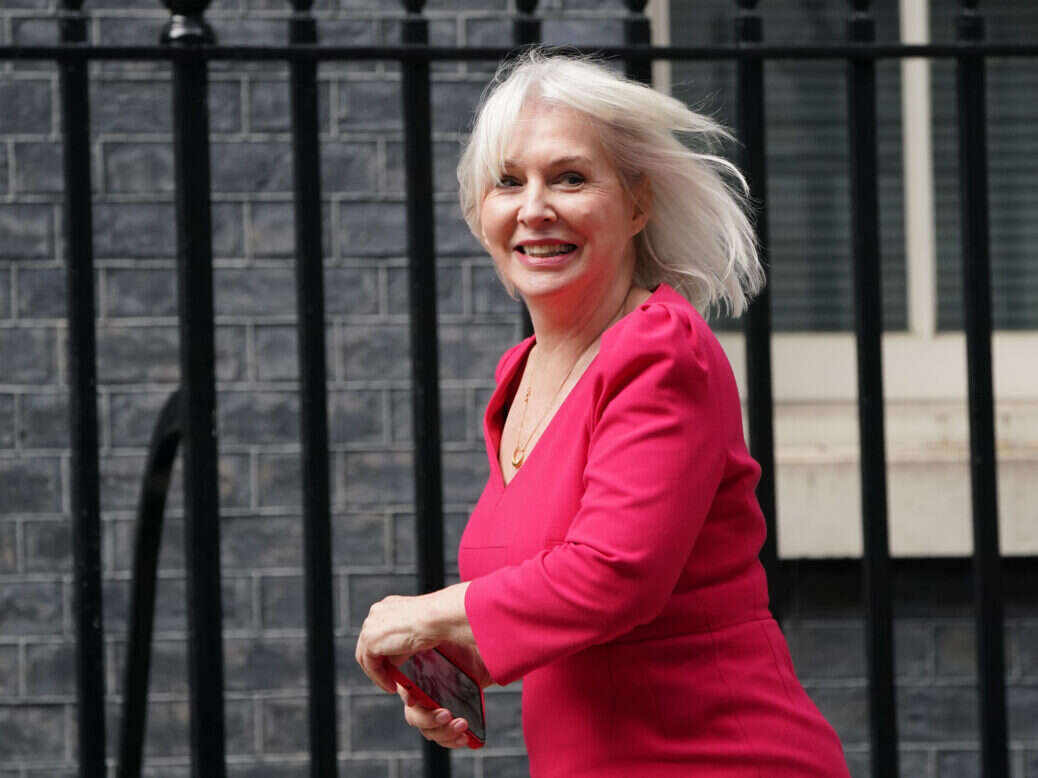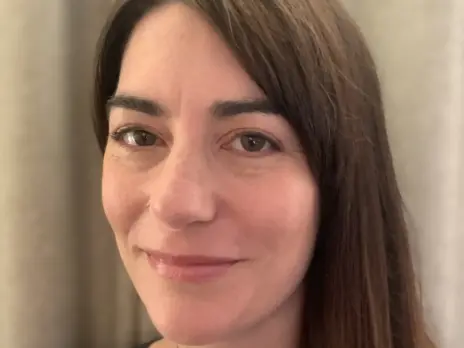
The BBC may not exist in a decade’s time, the new Culture Secretary has suggested as she took aim at its “elitist” approach and “lack of impartiality”.
Nadine Dorries insisted she did not want a “war” with the broadcaster but suggested it would have to set out how it will change before the next licence fee settlement, which covers the five years from April 2022.
At a Conservative Party conference fringe event she admitted “I don’t know” if the broadcaster will even survive in ten years’ time in the face of competition from new players such as Netflix.
[Read more about Nadine Dorries and the media: Licence fee sceptic who threatened to nail reporter’s testicles to the floor]
At an event hosted by the Telegraph’s Chopper’s Politics podcast on Monday, Dorries was asked whether the licence fee would still be compulsory in ten or 20 years.
“I can’t look into the future. Will the BBC still be here in ten years? I don’t know,” she said.
“We can’t look into the future. It is a very competitive environment at the moment.
“You have got Amazon Prime, Netflix and other bods coming down the line.
“This younger generation that are coming through, they certainly watch their television in a very different way to how my generation watched its TV, so who knows where we will be.”
Dorries, who has only been in her role since September’s reshuffle, said she had “an interesting meeting” with BBC director-general Tim Davie and chairman Richard Sharp.
“The perspective of the BBC is that they will get a settlement fee and then we will talk about how they are going to change,” the Culture Secretary said.
“My perspective is ‘tell me how you are going to change and then you get the settlement fee”.
On Tuesday the Prime Minister was asked about the future of the BBC during an interview with GB News.
“The BBC has been around for a very long time, it’s a great national institution, I’ve no doubt that it will be around for a long time to come,” Boris Johnson said.
Dorries highlighted a series of issues she had with the broadcaster, including a lack of working-class diversity and perceived political bias.
“It’s about recognising that access and lack of impartiality are part of your problem,” she said.
She said there was a “groupthink” at the corporation which “excludes working-class backgrounds”.
“North West, North East, Yorkshire – if you have got a regional accent in the BBC it doesn’t go down particularly well,” she said.
“They talk about lots to do with diversity but they don’t talk about kids from working-class backgrounds and that’s got to change.”
Asked how to address that, she said: “It’s not about quotas, it’s just about having a more fair approach and a less elitist and a less snobbish approach as to who works for you.”
The BBC was listed 21st in the Social Mobility Foundation’s 2020 ranking of the best employers for social mobility, and has been the only media organisation featured for four years running.
In March this year the corporation had 290 apprentices and is aiming to increase this to 1,000 by 2025.
Dorries, who went from a working-class background in Liverpool to become a bestselling author and Cabinet minister, said the path from similar upbringings to the top of a career in the arts or media had “completely disappeared”.
“People I went to school with, from my background – I borrowed shoes to go to school, and people I went to school, who had done exactly the same thing – one of them went on to be Cher’s music producer, another one went on to be a very well-known TV broadcaster.
“People from my background wrote books, wrote theatre plays and did really well.
“If you want to do that today you need a double-barrelled name, you need to have gone to a private or a public school or your mum needs to know someone, or your dad needs to know someone, or you need to have a connection at the BBC.”
Some 61% of all BBC staff attended a state run or funded school, according to the BBC’s latest annual report, almost there was no data for almost a fifth of staff (including 4.2% who preferred not to say).
A fifth of all staff came from a working class/lower socio economic family background - but again a fifth of the data is missing.
Dorries also said: “Levelling up isn’t about regional growth figures, it’s not about connectivity, it’s about none of that, it’s about people.
“The people it’s about the most are people who come from a background like mine who want to be the next Grand Slam champion but can’t afford the private tennis lessons; who want to be the next Daisy Edgar-Jones but their mum or dad aren’t head of entertainment at Sky; or they want to be Benedict Cumberbatch but they don’t go to private school.
“I want to go back to those kids and find them a pathway into the industry.”
[Read more: BBC boss fears 'Jess Brammar effect' will affect hiring of journalists with diversity of views]
Picture: PA Wire/Victoria Jones
Email pged@pressgazette.co.uk to point out mistakes, provide story tips or send in a letter for publication on our "Letters Page" blog






